All things old China - books, anecdotes, stories, podcasts, factoids & ramblings from the author Paul French
Posted: March 5th, 2018 | No Comments »
Bespoke Beijing (who organise the Midnight in Peking walking tour) have been blown away by the response to the tours I’m jouning in March – amazingly, and perhaps somewhat bizarrely, they sold out in a matter of days. As a result we’re going to do one more walking tour + dinner on Sunday April 1st! Click the link to buy tickets!
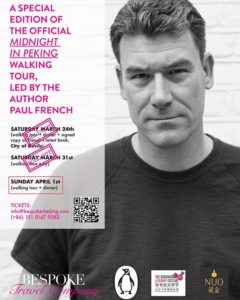
Posted: March 5th, 2018 | No Comments »
The original French Connection – Frenchtown Shanghai to Marseilles courtesy of the Union Corse…click here to see more

Posted: March 4th, 2018 | No Comments »
The 37427 gang run by “Fat” Tony Perpetuo was based out of the 37427 Casino on the Bubbling Well Road (Nanjing West Road – below). Fat Tony was Shanghai’s other Portuguese mob boss (see yesterday’s post on Jose Bothelo and the Silver Palace Gang for more Portuguese bad guys in old Shanghai – Jose in Frenchtown and Fat Tony in the Settlement)….
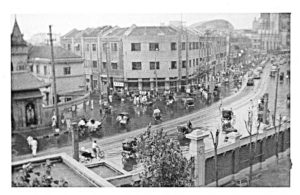
Posted: March 2nd, 2018 | 2 Comments »
Today’s old gang of Shanghai, in association with That’s Shanghai, is the Portuguese crew of Jose Bothelo (one of two big Portuguese gangs in Shanghai) that operated out of the Silver Palace Casino on the Avenue Foch (Yanan Zhong Lu)….click here…
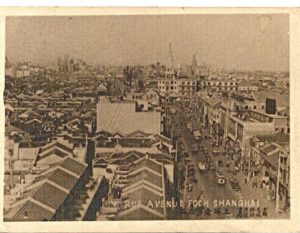
Posted: March 1st, 2018 | 1 Comment »
Today’s gang of old Shanghai is the Giraldi gang – that’s the gang of White Russians around Shura Giraldi who some might remember as the hermaphrodite nightclub owner in Midnight in Peking. Shura allegedly robbed, burgled, fenced and procured his way to great wealth in the Peking Badlands but invested the money in Shanghai’s Frenchtown. Ultimately, in the 1950s, he was reduced to being shipped back to an uncertain fate in the USSR – here he is, with a last remaining young friend, in the Talati Hotel on Tianjin’s old Victoria Road (now Jiefang Road and the First Business Hotel) before being deported to Russia in the mid-1950s….
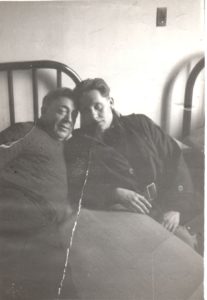
Posted: February 28th, 2018 | 1 Comment »
Today’s Gang of Old Shanghai in my series with That’s Shanghai is perhaps the city’s most powerful and long-lived organisations – The Canidrome Tower Gang in Frenchtown…
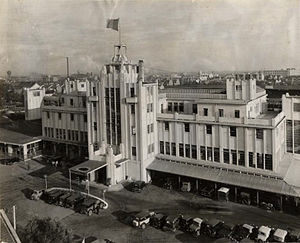
Posted: February 28th, 2018 | No Comments »
Today’s gang in my That’s Shanghai series on the Gangs of Old Shanghai is the Shumchun Triads – from a little village on the Hong Kong border once called Shumchun and now buried somewhere under the city called Shenzhen – their haunt was Fah Wah Village – mostly forgotten now but remembered by Fahuazhen Lu which runs rights through the old Fah Wah rookery….
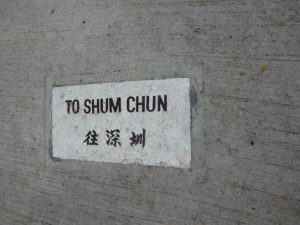
Posted: February 27th, 2018 | No Comments »
Here’s the full programme and ticket booking details for the 2018 Beijing Bookworm International Literary Festival….I’m talking on City of Devils on 22nd, doing some Midnight in Peking walks and various other events….do come along….








